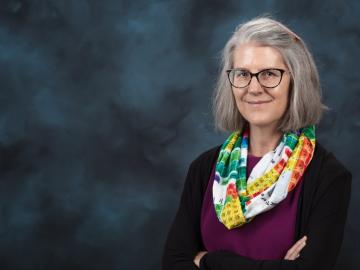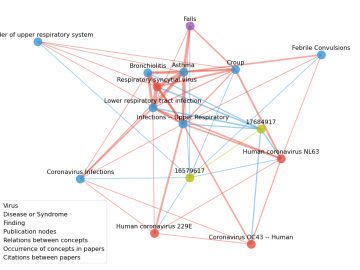
Filter News
Area of Research
- (-) Materials (10)
- (-) National Security (21)
- (-) Supercomputing (36)
- Advanced Manufacturing (1)
- Biology and Environment (14)
- Computational Biology (1)
- Computational Engineering (1)
- Computer Science (6)
- Electricity and Smart Grid (2)
- Energy Science (35)
- Fusion and Fission (16)
- Fusion Energy (11)
- Neutron Science (5)
- Nuclear Science and Technology (11)
- Quantum information Science (1)
- Sensors and Controls (1)
News Type
News Topics
- (-) Fusion (5)
- (-) Grid (8)
- (-) Machine Learning (15)
- (-) Molten Salt (1)
- (-) Security (8)
- (-) Summit (28)
- 3-D Printing/Advanced Manufacturing (12)
- Advanced Reactors (3)
- Artificial Intelligence (27)
- Big Data (23)
- Bioenergy (7)
- Biology (9)
- Biomedical (14)
- Biotechnology (2)
- Buildings (4)
- Chemical Sciences (11)
- Clean Water (3)
- Composites (6)
- Computer Science (69)
- Coronavirus (12)
- Critical Materials (7)
- Cybersecurity (9)
- Energy Storage (16)
- Environment (27)
- Exascale Computing (17)
- Frontier (18)
- High-Performance Computing (30)
- Isotopes (9)
- Materials (34)
- Materials Science (39)
- Mathematics (2)
- Microscopy (13)
- Nanotechnology (17)
- National Security (24)
- Neutron Science (18)
- Nuclear Energy (16)
- Partnerships (4)
- Physics (15)
- Polymers (11)
- Quantum Computing (16)
- Quantum Science (16)
- Simulation (13)
- Software (1)
- Space Exploration (4)
- Transportation (15)
Media Contacts

A team of scientists led by the Department of Energy’s Oak Ridge National Laboratory and the Georgia Institute of Technology is using supercomputing and revolutionary deep learning tools to predict the structures and roles of thousands of proteins with unknown functions.

Improved data, models and analyses from ORNL scientists and many other researchers in the latest global climate assessment report provide new levels of certainty about what the future holds for the planet

Deborah Frincke, one of the nation’s preeminent computer scientists and cybersecurity experts, serves as associate laboratory director of ORNL’s National Security Science Directorate. Credit: Carlos Jones/ORNL, U.S. Dept. of Energy

Twenty-seven ORNL researchers Zoomed into 11 middle schools across Tennessee during the annual Engineers Week in February. East Tennessee schools throughout Oak Ridge and Roane, Sevier, Blount and Loudon counties participated, with three West Tennessee schools joining in.

Since the 1930s, scientists have been using particle accelerators to gain insights into the structure of matter and the laws of physics that govern our world.

There are more than 17 million veterans in the United States, and approximately half rely on the Department of Veterans Affairs for their healthcare.

ORNL researchers have developed an intelligent power electronic inverter platform that can connect locally sited energy resources such as solar panels, energy storage and electric vehicles and smoothly interact with the utility power grid.

From materials science and earth system modeling to quantum information science and cybersecurity, experts in many fields run simulations and conduct experiments to collect the abundance of data necessary for scientific progress.

Research by an international team led by Duke University and the Department of Energy’s Oak Ridge National Laboratory scientists could speed the way to safer rechargeable batteries for consumer electronics such as laptops and cellphones.

Scientists have tapped the immense power of the Summit supercomputer at Oak Ridge National Laboratory to comb through millions of medical journal articles to identify potential vaccines, drugs and effective measures that could suppress or stop the


